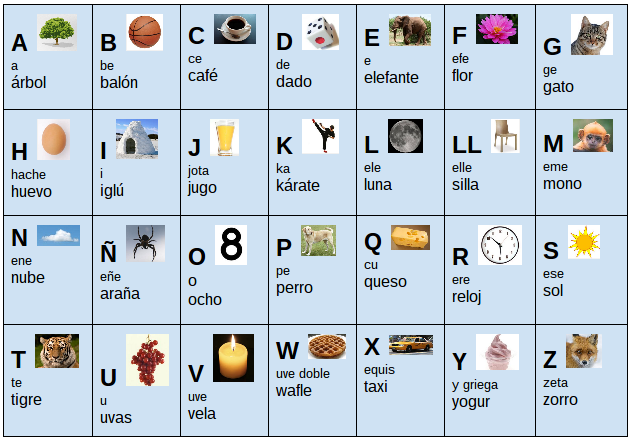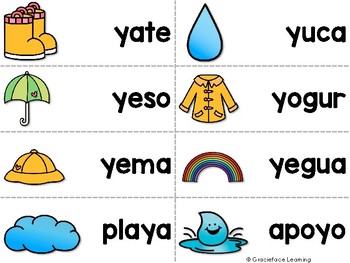Words That Start With E In Spanish
1. elefante (elephant)
2. espejo (mirror)
3. estudiante (student)
4. encantador (charming)
5. escuela (school)
6. escribir (to write)
7. enfermedad (illness)
8. empleado (employee)
9. enamorado/a (in love)
10. emocionante (exciting)
11. exprimir (to squeeze)
12. esposo/a (spouse)
13. excelente (excellent)
14. esperanza (hope)
15. ejecutivo/a (executive)
16. equilibrio (balance)
17. esencia (essence)
18. extremo/a (extreme)
19. epidemia (epidemic)
20. enfrentamiento (confrontation)
21. embarazo (pregnancy)
22. estampado (patterned)
23. encender (to turn on)
24. entusiasmo (enthusiasm)
25. escultura (sculpture)
26. exótico/a (exotic)
27. edificio (building)
28. expansión (expansion)
29. esperar (to wait)
30. echar de menos (to miss someone)
More About
Welcome to our blog, where we explore the vast and vibrant world of Spanish vocabulary! In today’s edition, we dive into an exciting journey through words that start with the letter “E” in Spanish. Each letter carries its own charm and elegance, and “E” is no exception. From everyday items to abstract concepts, the letter “E” adds a touch of excitement and creativity to the Spanish language.
Spanish learners often find it helpful to focus on specific letters to expand their vocabulary. By delving into words that start with “E,” we can uncover an abundance of words that will enrich our understanding and proficiency in this beautiful language. Whether you are a beginner or an advanced learner, this exploration of “E” words will surely captivate your interest.
Let’s start with some basic and essential words that begin with “E.” “Escuela” (school) is a word that represents an important aspect of our early lives as we embark on our educational journey. Another fundamental term is “estudiante” (student), which beautifully encompasses the diverse individuals who engage in the pursuit of knowledge. These words lay the foundation for our exploration of other “E” words, as they connect to numerous subjects and themes in Spanish.
Expanding our vocabulary beyond the basics, we venture into the fascinating world of nature and find words like “elefante” (elephant), “estrella” (star), and “esmeralda” (emerald). These words evoke the marvels of the animal kingdom and celestial wonders, reminding us of the immense diversity and beauty that surrounds us.
Moving into the realm of human experiences and emotions, we encounter words like “emoción” (emotion), “esperanza” (hope), and “entusiasmo” (enthusiasm). These words allow us to delve into our innermost feelings, capturing the essence of our shared human experience. Through the exploration of these words, we have the opportunity to connect with others on a deeper level and engage in meaningful conversations.
As we navigate the world of language, we encounter words related to various professions and occupations. For instance, “enfermero/a” (nurse) and “electricista” (electrician) represent the hardworking individuals who contribute to our well-being and comfort. These words highlight the importance of professionals in our society and their dedication to their respective fields.
Now, let’s dive into the arts and culture. Spanish is renowned for its rich artistic and literary traditions, and “E” words are no exception in this realm. “Escultura” (sculpture), “escenario” (stage), and “escritura” (writing) transport us to the fascinating world of creativity and self-expression. These words offer a glimpse into the arts and remind us of the power of imagination and the influence of artistic endeavors in our lives.
In our exploration of “E” words, we cannot overlook the culinary delights that Spanish cuisine has to offer. From “ensalada” (salad) to “enchilada” (a Mexican dish), and “espresso” (a type of coffee), Spanish cuisine leaves us craving for more. These words entice our senses and invite us to savor the flavors and aromas that define the Spanish culinary landscape.
In conclusion, our journey through words that start with the letter “E” in Spanish has demonstrated the diverse and captivating nature of this language. From everyday terms to artistic expressions, we have explored a range of concepts that connect us to the world around us. In the next installments of our series, we will continue to unravel the beauty and intricacy of Spanish vocabulary, taking you on an unforgettable linguistic expedition. Stay tuned!
FAQs:
1. ¿En qué consiste el examen DELE?
El examen DELE evalúa el nivel de competencia en español como lengua extranjera.
2. ¿Existen clases de español en línea?
Sí, hoy en día hay muchas opciones de clases de español en línea para aprender desde cualquier lugar del mundo.
3. ¿Es difícil aprender español para hablantes de inglés?
El nivel de dificultad puede variar según la persona, pero con dedicación y práctica constante, es posible aprender español para hablantes de inglés.
4. ¿En qué países se habla español?
El español es el idioma oficial en 21 países, incluyendo España, México, Argentina, Colombia y Perú, entre otros.
5. ¿Es necesario viajar a un país hispanohablante para aprender español?
No es necesario viajar, pero sumergirse en un ambiente hispanohablante puede acelerar el proceso de aprendizaje y mejorar la fluidez.
6. ¿Cuál es la diferencia entre “ser” y “estar” en español?
“Ser” se utiliza para describir características permanentes, mientras que “estar” se usa para estados temporales o ubicaciones.
7. ¿Qué recursos recomiendan para practicar español en casa?
Algunos recursos útiles incluyen aplicaciones de aprendizaje de idiomas, películas, libros y conversaciones con hablantes nativos en línea.
8. ¿Cuánto tiempo lleva aprender español?
La duración para aprender español varía según factores individuales, pero alcanzar un nivel básico generalmente requerirá entre 6 meses y 1 año.
9. ¿Cuál es la mejor manera de mejorar la pronunciación en español?
La práctica constante es clave para mejorar la pronunciación. Es recomendable escuchar y repetir palabras y frases en español.
10. ¿Es posible aprender español sin tener una base previa en otro idioma romance?
Sí, es posible aprender español sin conocimientos previos de otros idiomas romance. Sin embargo, puede requerir un poco más de tiempo y esfuerzo.


















